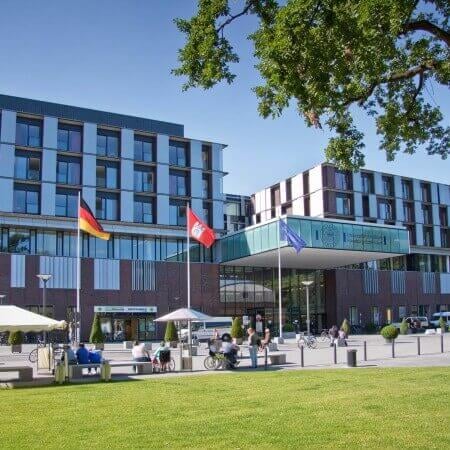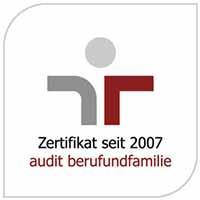Content
- CAR T-cell therapy overview
- Indications for CAR T-cell therapy
- Stages of CAR T-cell therapy
- Side effects of CAR T-cell therapy
- Where can I undergo CAR T-cell therapy in Germany?
- The cost of treatment in Germany
- How can I undergo CAR T-cell therapy in Germany?
CAR T-cell therapy is a treatment that teaches the patient's own cells to destroy cancer cells. This is a treatment method that allows complete individualized treatment for acute lymphoblastic leukemia – the most common type of cancer in children.
CAR T-cell therapy overview
The idea of using the mechanisms of immunity to treat malignant diseases has been around for over a hundred years. It has always been known that in the body of any person there are special cells – T-lymphocytes, NK-cells (natural killer cells), and macrophages – that are capable of recognizing and destroying pathologically altered cells. For a long time, scientists have tried to understand why anti-tumor immunity does not work well enough and tried to find ways to strengthen its activity.
In recent years, it became clear that, firstly, many tumors have defense mechanisms against the action of cells of the immune system. Secondly, malignant cells are just slightly different in their immunological properties from normal ones, that is, it is difficult for immune cells to distinguish them. The first problem was partially solved with discovering inhibitors with the help of which tumor cells suppress the activation of T-lymphocytes. The information about inhibitors have revolutionized the treatment of patients with skin tumors – melanoma. However, this approach was not effective for all types of tumors.
The development of CAR T-cell therapy, as a type of cell therapies, combines the latest advances in molecular biology, genetic engineering, and biotechnology. This made it possible to make tumor cells visible for the immune system.
CAR T-cell therapy (chimeric antigen receptor T-cell, or T-cells with a chimeric antigen receptors) includes the extraction of T-lymphocytes (cells belonging to the immune system) from the patient's body with the help of apheresis – a technology that separates the blood into components and gets a certain number of lymphocytes. Then the cells are modified so that they can recognize and attack tumor cells, and they are injected back into the patient's body so that, after reprogramming, they recognize, attack, and destroy cancer cells.
Leukemia and B-cell lymphomas resulting from pathological changes or malignant transformation of B-lymphocytes have a common feature – they produce a protein or antigen called CD19. When leukemia and B-cell lymphoma develop, lymphocytes cannot recognize their antigens and, as a result, cannot attack and prevent cancer cells from multiplying. With the help of genetic engineering, it is possible to reprogram lymphocytes and introduce new genetic information into them. After that, these cells start expressing a chimeric receptor, or CAR T, which will recognize the tumor antigen and destroy malignant cells. CAR T-cell therapy for patients with certain types of relapsed/refractory large B-cell lymphoma after at least two other kinds of therapies has been approved internationally.
CAR T-cell therapy combines three types of progressive therapies: cell therapy, immunotherapy, and gene therapy. It is considered a cell therapy because the patients are not given a drug, but receive their natural modified cells. It is also immunotherapy, as the cells of the immune system fight against cancer cells. Finally, this is a gene therapy method (one of the therapies to be approved by the FDA), since lymphocytes are genetically modified to fight the disease.
Indications for CAR T-cell therapy
CAR T-cell therapy treatment is currently prescribed for pediatric and young adult patients under 25 years of age with refractory B-cell lymphoma and acute lymphoblastic leukemia with a poor prognosis. CAR T-cell therapy is indicated for patients with leukemia who have had at least one relapse after bone marrow transplantation, or two to three relapses after using other therapies. In general, we are talking about patients who cannot achieve a response to treatments and cannot choose a therapeutic method among traditional ones (chemotherapy and bone marrow transplantation).
Also, CAR T-cell therapy is indicated for patients with diffuse large B-cell lymphoma with relapse or initial absence of a satisfactory response to therapies and recurrent acute lymphoblastic leukemia in young patients (under the age of 25).
Stages of CAR T-cell therapy
During the patient's hospital stay, white blood cells are removed from the blood using an extraction system (leukapheresis). These cells are sent for modification and subsequent cultivation in the laboratory.
Immune cells (T-lymphocytes) are genetically modified to recognize cancer cells, as well as other cells that express the specific antigen.
The modified T-cells are multiplied, frozen, and sent to the patient's hospital after going through a rigorous quality control process.
The patient receives chemotherapy to promote the proliferation and antitumor action of CAR T-cells. The ultimate goal is to help the body accept reprogrammed CAR T-cells.
Modified T-cells are administered by intravenous infusion, similar to a blood transfusion.
If the CAR T-cell therapy works as planned, it attacks the malignant cells and begins to destroy the cancer antigens once the CAR T-cell concentrate enters the patient's bloodstream.
In 30-40% of patients who received CAR T-cell therapy, unwanted side effects are possible. In some cases, they are not severe, but sometimes they require treatment and additional medical care.
The information in the medical literature indicates that more than 80% of patients who received this new therapy went into remission in the first three months after treatment.
Side effects of CAR T-cell therapy
The activation process of CAR T-cells can cause side effects known as cytokine release syndrome. It includes high fever, increased heart rate, low blood pressure, and low blood oxygen levels. After infusion of CAR T-cells, some patients may also experience temporary neurological deficits such as confusion and even communication difficulties.
Due to side effects, patients must spend some time in hospitals. Some patients may even stay in the intensive care unit. And for about a month or more after the infusion of CAR T-cells, the patient needs medical supervision.
The therapy is accompanied by certain side effects, so the patient will need hospitalization and specialist supervision. In general, side effects resemble those of the severe flu: high fever, chills, high blood pressure, shortness of breath. In some cases, neurological symptoms may appear, such as headaches, seizures, and, very rarely, cerebral edema.
The severity of side effects is connected with the severity of the initial malignant condition. With extensive bone marrow damage, the chance of recovery is lower, and the risk of side effects is higher. In such situations, it is advisable to prescribe the patient a preliminary course of chemotherapy to reduce the tumor mass, and only then immunotherapy starts.
According to the results of CAR T-cell therapy, the chance of a complete cure from acute lymphoblastic leukemia (the most common cancer in children) is 90%. In cell lymphoma – a disease more typical for adults – the same figure is 70%.
This treatment is quite difficult and is therefore only available in certified hospitals. But if a patient is diagnosed with a type of cancer that does not respond well to conventional treatment, it is worth exploring the possibility of participating in a clinical trial that uses CAR T-cell therapy.
Where can I undergo CAR T-cell therapy in Germany?
Health tourism is becoming more and more popular these days, as medicine in Germany often ensures a much better quality of CAR T-cell therapy.
The following hospitals show the best success rates in treatment with CAR T-cell therapy:
- University Hospital Ulm, Germany
- University Hospital Freiburg, Germany
- University Hospital Frankfurt am Main, Germany
- University Hospital Heidelberg, Germany
- University Hospital Wurzburg, Germany
You can find more information about the European hospitals on the Booking Health website.
The cost of treatment in Germany
The prices in hospitals listed on the Booking Health website are relatively low. With Booking Health, you can undergo CAR T-cell therapy treatment in Germany at an affordable price.
The cost of treatment in Germany varies, as the prices depend on the hospitals, the specifics of the disease, and the complexity of its treatment. The average cost of CAR T-cell therapy for acute lymphoblastic leukemia (ALL), acute myeloid leukemia (AML), or Non-Hodgkin lymphoma (B-cell) ranges from 454,100 EUR to 621,300 EUR.
You might want to consider the cost of possible additional procedures and follow-up care. Therefore, the ultimate cost of treatment in Germany may differ from the initial price.
To make sure that the overall cost of treatment in Germany is suitable for you, contact us by leaving the request on the Booking Health website.
How can I undergo CAR T-cell therapy in Germany?
It is not easy to self-organize any treatment abroad. It requires certain knowledge and expertise. Thus, it is safer, easier, and less stressful to use the services of a medical tourism agency.
As the largest and most transparent medical tourism agency in the world, Booking Health has up-to-date information about the treatment with CAR T-cell therapy in the best hospitals in Germany. We will help you select the right clinic taking into account your wishes for treatment.
We want to help you and take on all the troubles. You can be free of unnecessary stress, while Booking Health takes care of all organizational issues regarding the treatment in German hospitals. Our services are aimed at undergoing CAR T-cell therapy safely and successfully.
Medical tourism can be easy! All you need to do is to leave a request on the Booking Health website, and our manager will contact you shortly.
Authors:
The article was edited by medical experts, board certified doctors Dr. Nadezhda Ivanisova and Dr. Sergey Pashchenko. For the treatment of the conditions referred to in the article, you must consult a doctor; the information in the article is not intended for self-medication!
Our editorial policy, which details our commitment to accuracy and transparency, is available here. Click this link to review our policies.
Sources:
National Cancer Institute
American Cancer Society
Memorial Sloan Kettering Cancer Center



















